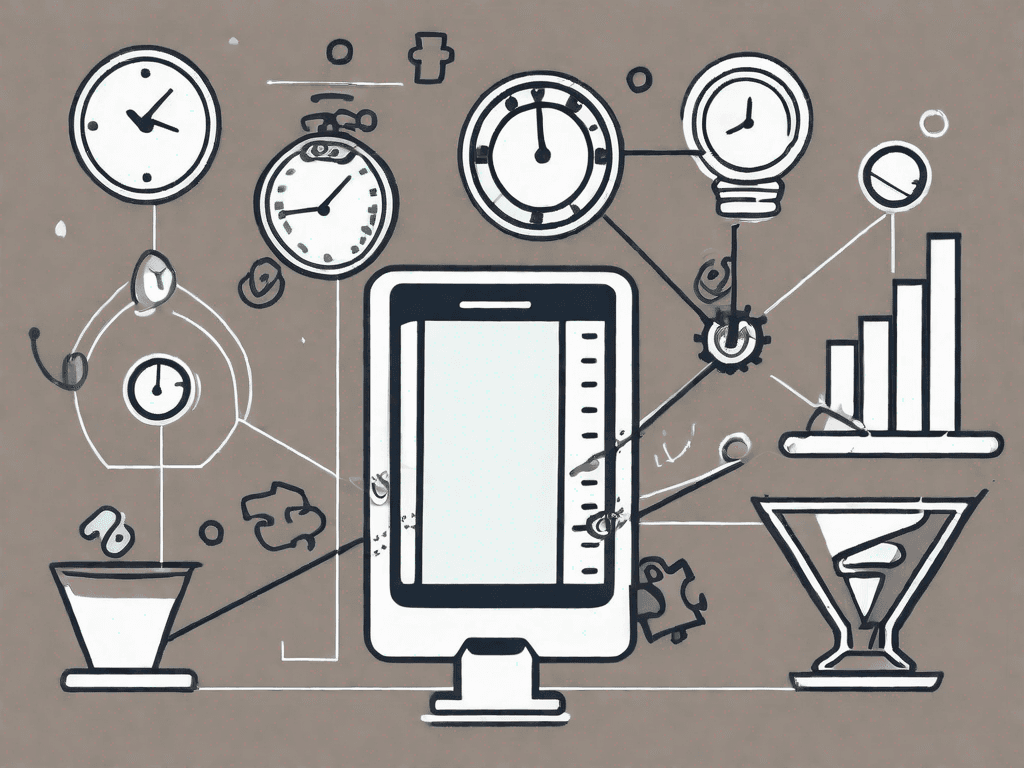
What is Predictive Lead Scoring? (Explained With Examples)
Predictive Lead Scoring is a technique used by businesses to prioritize and rank the potential value of their leads. It helps companies identify the leads that are most likely to convert into customers. By leveraging data and machine learning algorithms, predictive lead scoring takes into account a variety of factors to determine the likelihood of a lead becoming a paying customer
1°) What is Predictive Lead Scoring?
Predictive Lead Scoring is a method that uses historical data and predictive analytics to assign a score to each lead. This score indicates the probability of the lead converting into a customer. The higher the score, the more likely the lead is to become a customer. This approach allows businesses to focus their efforts on the leads with the highest potential, improving sales efficiency and closing rates.
1.1 - Definition of Predictive Lead Scoring
In simple terms, Predictive Lead Scoring is a process that uses machine learning algorithms to analyze historical customer data and identify patterns and characteristics that are indicative of a lead's potential to convert. These algorithms assign a numerical score to each lead, which can then be used to prioritize sales efforts and allocate resources effectively.
By leveraging the power of data and advanced analytics, Predictive Lead Scoring enables businesses to make informed decisions about which leads to pursue. It goes beyond traditional lead scoring methods that rely solely on demographic and firmographic data, allowing companies to gain deeper insights into their potential customers.
These machine learning algorithms take into account a wide range of factors, including past purchase behavior, website engagement, email interactions, social media activity, and more. By analyzing these data points, the algorithms can identify patterns and trends that indicate a lead's likelihood of converting into a customer.
For example, if a lead has previously shown a high level of engagement with a company's website, such as visiting multiple product pages, downloading resources, and subscribing to newsletters, the predictive lead scoring algorithm may assign a higher score to that lead. On the other hand, if a lead has shown minimal engagement and has not interacted with the company's marketing materials, the algorithm may assign a lower score.
1.2 - Advantages of Predictive Lead Scoring
Predictive Lead Scoring offers several advantages for businesses:
Increased Efficiency: By focusing on leads with a higher scoring, businesses can allocate their resources more efficiently, ensuring that their sales efforts are directed towards the most promising opportunities. This targeted approach saves time and resources, allowing sales teams to prioritize their efforts and maximize their productivity.
Better Sales Conversion Rates: By targeting leads that are more likely to convert, businesses can improve their sales conversion rates, resulting in higher revenue and growth. Predictive Lead Scoring helps sales teams identify the leads that are most likely to make a purchase, allowing them to tailor their messaging and approach to increase the chances of a successful conversion.
Improved Lead Qualification: Predictive Lead Scoring helps businesses differentiate between leads that are likely to convert and those that are not, allowing them to prioritize their efforts and avoid wasting time on leads that are less likely to result in a sale. By focusing on high-quality leads, businesses can streamline their sales process and increase their overall efficiency.
These advantages make Predictive Lead Scoring a valuable tool for businesses looking to optimize their sales and marketing efforts. By leveraging data-driven insights, companies can make smarter decisions about where to invest their time and resources, ultimately driving better results and increasing their bottom line.
1.3 - Disadvantages of Predictive Lead Scoring
While Predictive Lead Scoring is a valuable tool for businesses, it is not without its limitations:
Data Requirements: Since predictive lead scoring relies on historical data, it requires a sufficient amount of data to train the machine learning algorithms effectively. Businesses with limited data may struggle to implement this technique successfully. It is essential for companies to have a robust data collection and management system in place to ensure the accuracy and reliability of the predictive lead scoring model.
Complexity: Implementing a predictive lead scoring system can be complex, requiring expertise in data analysis and machine learning. Businesses without the necessary resources or expertise may find it challenging to implement and maintain. It may be necessary to invest in training or hire data scientists to ensure the successful implementation and ongoing management of the predictive lead scoring system.
Ongoing Maintenance: Predictive lead scoring models need to be constantly updated and refined as new data becomes available. This ongoing maintenance requires time and effort to ensure the accuracy and effectiveness of the scoring system. Businesses must have a process in place to regularly review and update their predictive lead scoring models to account for changes in customer behavior and market dynamics.
Despite these challenges, the benefits of predictive lead scoring outweigh the disadvantages for many businesses. By leveraging advanced analytics and machine learning, companies can gain a competitive edge by identifying and prioritizing the most promising leads, ultimately driving revenue growth and improving overall sales performance.
2°) Examples of Predictive Lead Scoring
Now let's look at some examples of how Predictive Lead Scoring can be applied in different contexts:
2.1 - Example in a Startup Context
In a startup context, predictive lead scoring can help identify early adopters and potential customers who are most likely to embrace a new product or service. By analyzing data from early beta users and demographic information, startups can prioritize their outreach efforts and focus on leads that have a higher probability of conversion.
For example, let's say there's a startup that has developed a cutting-edge mobile application for fitness tracking. Through predictive lead scoring, the startup can identify individuals who have shown a strong interest in fitness-related content, have downloaded similar apps in the past, and have a high likelihood of being early adopters. By targeting these leads, the startup can maximize its chances of gaining traction and acquiring loyal customers.
2.2 - Example in a Consulting Context
For consulting firms, predictive lead scoring can assist in identifying leads that have a higher likelihood of requiring consulting services. By analyzing industry trends and lead behavior, consulting firms can target their marketing efforts towards the leads that are most likely to need their expertise, optimizing their time and resources.
Let's consider a consulting firm specializing in digital transformation for large enterprises. Through predictive lead scoring, the firm can analyze data such as the company's industry, recent mergers or acquisitions, and the level of digital maturity. By identifying leads that are in industries undergoing significant digital disruption or those that have recently undergone organizational changes, the consulting firm can tailor its messaging and outreach to address the specific pain points and challenges these leads are likely facing.
2.3 - Example in a Digital Marketing Agency Context
In the context of a digital marketing agency, predictive lead scoring can help identify leads that are likely to require specific marketing services. By analyzing website engagement, past campaign performance, and demographics, digital marketing agencies can prioritize leads and tailor their proposals to meet the specific needs and pain points of each lead.
Let's imagine a digital marketing agency that specializes in social media advertising. Through predictive lead scoring, the agency can analyze data such as a lead's social media presence, engagement with previous ads, and industry-specific metrics. By identifying leads that have a strong social media presence, have shown interest in similar campaigns, and belong to industries where social media plays a crucial role, the agency can craft personalized proposals that highlight the potential benefits and ROI of their services for each lead.
2.4 - Example with Analogies
To further illustrate the concept of predictive lead scoring, let's consider two analogies:
Analogy 1: Imagine you are a fisherman trying to catch fish in a lake. Instead of randomly casting your net, predictive lead scoring allows you to focus on areas of the lake where fish are most likely to be present, increasing your chances of a successful catch. Just like the fisherman, businesses can save time and resources by targeting leads that have a higher probability of conversion.
Analogy 2: Think of predictive lead scoring as a compass that helps you navigate through a dense forest. Instead of wandering aimlessly, the compass guides you towards the paths that lead to your destination, saving you time and effort. Similarly, businesses can use predictive lead scoring to navigate through a vast pool of leads and focus their efforts on those that are most likely to result in successful conversions.
In conclusion, Predictive Lead Scoring is a powerful tool that enables businesses to prioritize their leads, allocate resources efficiently, and improve sales conversion rates. While it has its advantages and disadvantages, when implemented and maintained effectively, predictive lead scoring can significantly enhance a company's sales and marketing efforts.











































































































































































































